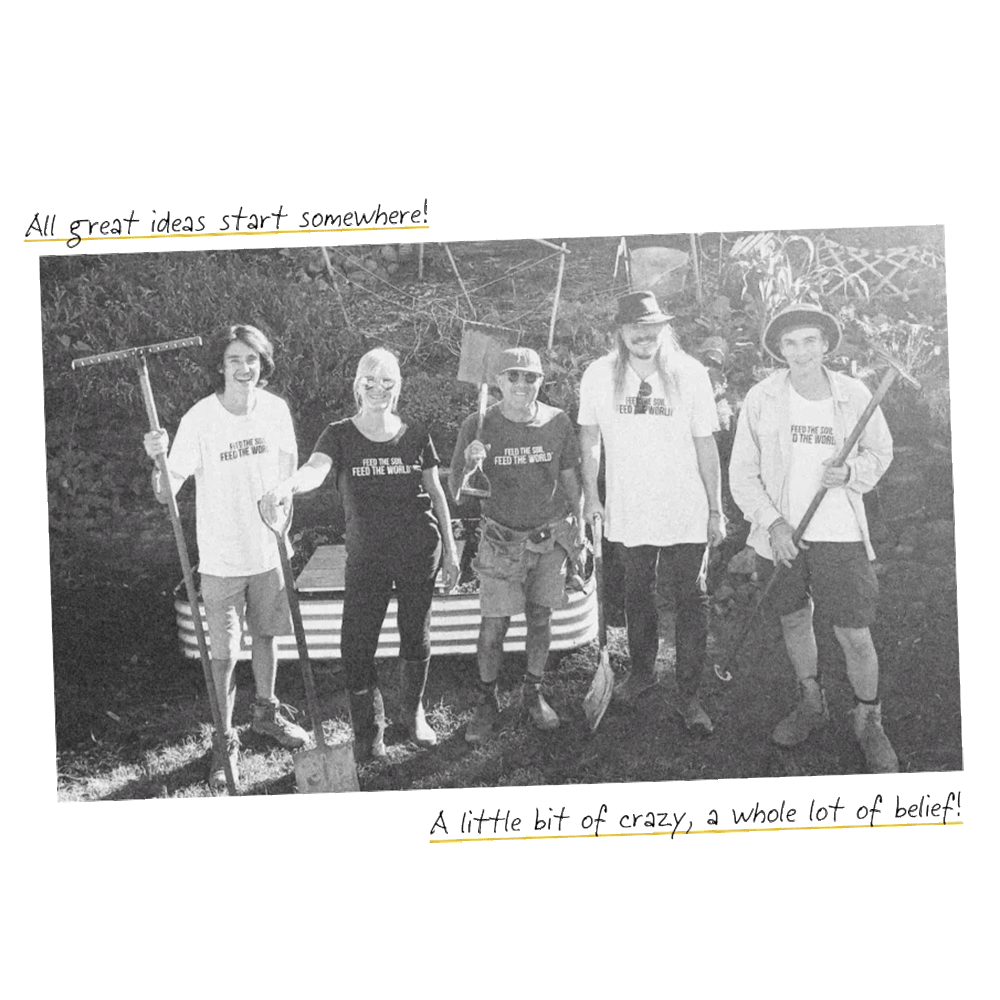You want a healthy, lush backyard. You love gardening and are prepared to put in the hours, but you know that your plants will need a little more than your green fingers to thrive. They need plant food. Plant SUPER food even!
When it comes to the right food to provide the nutrients your plants need, gardeners are faced with a choice.
Do you go fully synthetic and buy over-the-counter fertilisers containing chemically manufactured materials? Or do you go the composting route, using sustainable, natural organic fertiliser with proven benefits for the environment? It’s a debate that farmers, gardeners and landscapers everywhere have been having for years!
For us, there’s one clear answer.
Today we want to talk about why compost should be the natural choice for gardeners around the world. To do that, let's first understand exactly what compost and synthetic fertilisers are.
What is Compost?
Compost is an organic fertiliser, created through a natural and sustainable process whereby organic matter decomposes to form a rich, dark soil. This soil is often termed ‘black gold’ because of the powerful benefits it holds for plants and gardens!
The composting process is how nature has been making her own fertiliser for millenia now. She’s had a long time to get it right, and we reckon she’s done a fantastic job!
What Are Synthetic Fertilisers?
Synthetic fertilizers are man-made from chemicals and inorganic substances. Manufactured from non-renewable resources with high energy input, they’re designed to provide plants with the nutrients required to grow. The three main ones that you’ll find in these fertilisers are nitrogen, potassium and phosphorus.
The fertilisers come in small, granular pellets or as a water soluble product.
Why Do People Use Synthetic Fertilisers?
Before we talk about why compost is superior as a plant food, let’s touch on why people use synthetic fertilisers in the first place. For a start, they’re fast acting. If a farmer has a severe deficiency in their crop they’re likely to turn to a synthetic fertiliser. They also make it easy to apply the precise amount of nutrients required by your plants into the soil.
Unfortunately this makes them the easier option for massive commercial farming operations. The majority of these setups will be using synthetic fertilisers.
The problem is, while synthetic fertilisers provide the nutrients for your plants, they’re actually pretty harmful to the soil itself. In fact, they’re downright nasty!
How Synthetic Fertilisers Harm the Environment
Inorganic fertilisers affect the biology of our soils, particularly when they’re consistently applied. They affect the soil pH by raising the level of acids in the soil, which will eliminate microorganisms that are beneficial to plant and soil health. They also harm healthy, nitrogen-fixing bacteria in the soil, taking away a vital source of this important nutrient.
This all actually leads to nutrient deficiency in the soil. Since the inorganic chemical fertilisers only supply a narrow range of nutrients, over time the fertility of the soil becomes depleted. A follow on from this is a reduction in biodiversity, because the nutrients in the applied fertilisers will favor certain plant species and not others.
Synthetic fertilisers also cause leach into surrounding waterways and cause pollution there. Local fish, wildlife and plants suffer as a result.
Why You Should Choose Compost For Your Garden
There are so many reasons why compost is the best choice as a fertiliser for your garden. For a start, it’s completely natural and organic, created in a sustainable way with no reliance on non-renewables.
Compost is nutrient rich, containing the nitrogen, phosphorus and potassium your plants need, plus a wide range of trace elements. It actually helps to balance pH levels rather than making them too acidic. Adding it to acidic soils will bring the pH levels down, and vice versa with alkaline soils.
Compost will improve your soil structure and structure. It optimizes soil density, binding loose soil together and creating space in densely packed soil. This improves water porosity and aeration, which are both really important for healthy plants.
Soil fertilised with compost is full of life, from worms to insects to beneficial microorganisms. Compost also supports microbial activity, which is essential for healthy soils and for the carbon cycle. Basically, composting supports a healthy ecosystem!
It’s not hard to start creating your own nutritious compost right in your backyard. Here’s how!
Get Composting Today
Subpod is a beginner-friendly means of home composting. Our in-ground worm farm is easy to set up, and once your worms are established it only takes a few minutes of maintenance a day. Your food waste goes in, and delicious ‘black gold’ compost comes out!
Your Subpod will sit semi-submerged in your backyard, with its stylish lid doubling up as a garden seat. It looks great, and feeding your worms and watching them work is a really fun activity for the whole family. Plus you get to bond over something positive, like keeping your food waste out of landfill and turning it into something good for the environment!
Check out our products below. If you have composting questions we have over 20,000 composting enthusiasts at our GrowHub waiting to answer them for you!
Going the organic, home composting route?
Subpod worm farm compost systems are your perfect partner!






Leave a comment
This site is protected by reCAPTCHA and the Google Privacy Policy and Terms of Service apply.